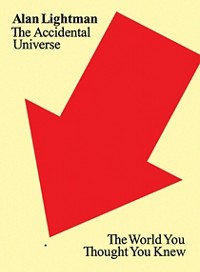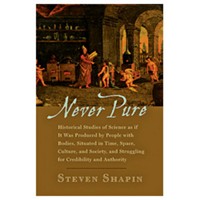Advertisement
Grab your lab coat. Let's get started
Welcome!
Welcome!
Create an account below to get 6 C&EN articles per month, receive newsletters and more - all free.
It seems this is your first time logging in online. Please enter the following information to continue.
As an ACS member you automatically get access to this site. All we need is few more details to create your reading experience.
Not you? Sign in with a different account.
Not you? Sign in with a different account.
ERROR 1
ERROR 1
ERROR 2
ERROR 2
ERROR 2
ERROR 2
ERROR 2
Password and Confirm password must match.
If you have an ACS member number, please enter it here so we can link this account to your membership. (optional)
ERROR 2
ACS values your privacy. By submitting your information, you are gaining access to C&EN and subscribing to our weekly newsletter. We use the information you provide to make your reading experience better, and we will never sell your data to third party members.
Environment
A New Kind Of God
by Ivan Amato,
June 2, 2008
| A version of this story appeared in
Volume 86, Issue 22
Ever since I had even a rudimentary grasp of the biggest story of all—you know, the one that begins with a Big Bang out of which fundamental particles congealed and then coalesced into galaxies, planets, and a living kingdom that includes people capable of wondering where the whole shebang came from—I have revered the universe for its inherent creative power.
This is why a brilliant field of stars, a dragonfly executing aeronautical acrobatics, and an insight into how a protein's structure elicits its biological function all can evoke in me a sense of awe. One of the greatest gifts the scientific enterprise offers, I have come to believe, is an ever-growing basis for revering the universe and experiencing awe.
Which is why I find Stuart A. Kauffman's new book, "Reinventing the Sacred: A New View of Science, Reason, and Religion" (Basic Books), so provocative, courageous, and potentially important.
Few are those scientists who passionately acknowledge the awe and even religious sensibility that contemplation on the evidence-based portrait of the universe can catalyze. And almost as rare as a Higgs boson sighting is an accomplished scientist who argues that the "relentless creativity of the universe" should be spoken of as God and that this new conception of God should supplant the thousands-year embrace by billions of human beings of a transcendent creator God.
"In this ceaseless creativity in the universe, biosphere, and human culture and history, we can reinvent the sacred, and find a new view of God as the fully natural, awesome creativity that surrounds us," Kauffman writes. A complexity theorist at the University of Calgary, he's spent decades investigating how magnificent phenomena, among them life and consciousness, could have self-organized into existence solely by way of the universe's raw materials and natural processes. There are harmonics of pantheism in his sermon.
The audacity of Kauffman's intentions almost surely will trigger head-shaking disdain from those of us who think of science and religion as incommensurable domains that ought to stand apart in a separation-of-church-and-state sort of way. And his invitation to billions of believers in liturgy-based religions to trade in their faith in an anthropomorphic God that perhaps even can intervene in their lives is not likely to result in many RSVPs.
Even so, I applaud Kauffman's courage to implore so publicly that an updated nature-based religious sensibility might be just what the rapidly globalizing human community could use right now. It is the pathway, he suggests, by which billions of diverse people might learn to live well and long with one another. It is a pathway, he tells his readers, that calls upon us all to reset our foundations for establishing meaning, values, and ethical practice.
To reinvent the sacred and preach his new conception of God, Kauffman venomously goes after the ontological myopia of the centuries-old reductionist approach whereby biology—and presumably mind, consciousness, and other emergent phenomena—is "reduced" to chemistry, which is "reduced" to physics. Reductionism, argues Kauffman, does not render emergent phenomena such as life and mind and agency any less real than atoms and quarks. Rather, emergent phenomena have the same ontological value—that is, reality—as do particles in motion. More than that, Kauffman argues (frequently by way of challenging conceptual models drawn from complexity theory, quantum mechanics, and mathematics) that the unfolding of the universe—including such epic dramas as biological evolution—is ineluctably unpredictable even though the unfolding occurs fully in accordance with natural laws.
There is a bit of urgency in Kauffman's message. He fears that unless the hard work of reinventing the sacred gets done, the growing momentum of ideological and religious fundamentalisms wrought with intolerance and mutual incompatibilities could become globally ruinous.
With his new book, Kauffman has anointed himself as a global 21st-century prophet. There's no calling from a transcendent God involved. Rather, he says, "the science itself compels it."
Thanks for reading.
Views expressed on this page are those of the author and not necessarily those of ACS.





Join the conversation
Contact the reporter
Submit a Letter to the Editor for publication
Engage with us on Twitter